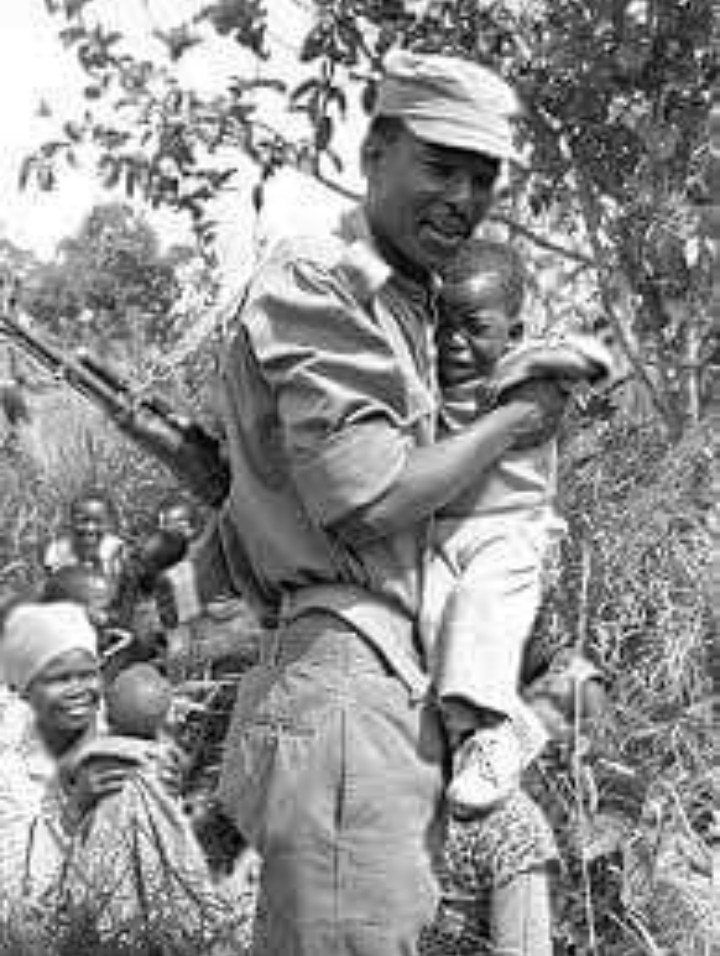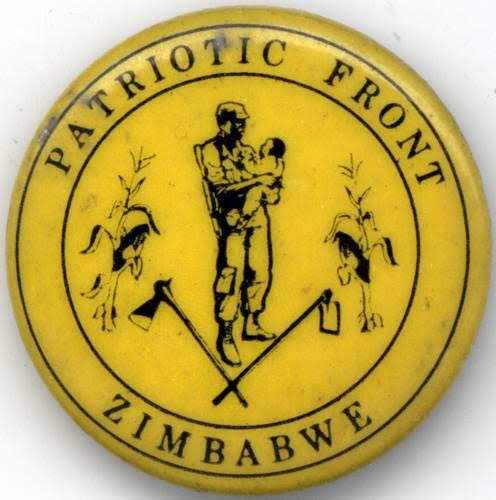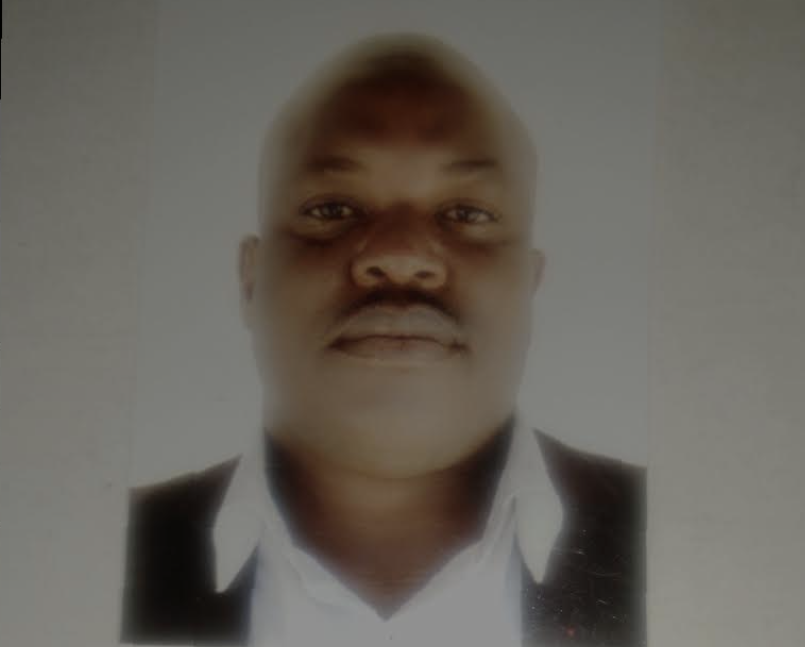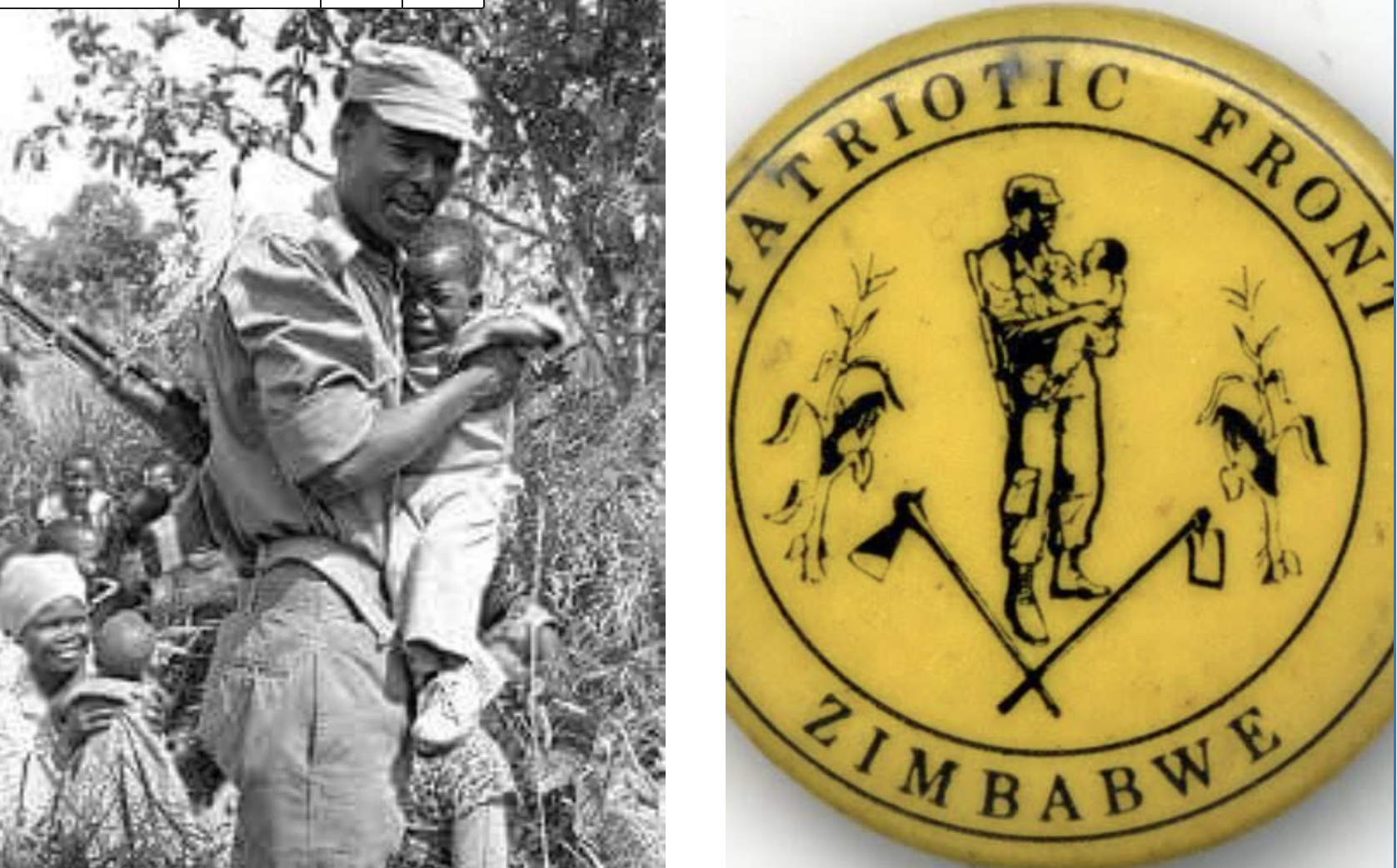The ZPRA soldier, Seven Dube, who became the face of the armed wing as “Isotsha eliphethe umntwana” (the soldier cradling the baby) is still alive 44 years after independence, and the baby has become a councillor in Mangwe, Plumtree, CITE can reveal.
In a historically significant story, CITE spoke to Tshetshukuza Ngwenya, now a Ward 2 councillor at Izimnyama, who confirmed that he is the baby in the picture, believed to be taken by Zenzo Nkobi, a ZAPU photographer.
“Yes, history shows I am that child,” said the councillor who tracked down Dube last year.
“I started looking for Dube after always hearing about an elderly man known as Seven Dube, who said he had picked up a child from koNxele. This was when I wanted to be a councillor. This prompted me to search for him because the community was advising me to seek him before he passed away given his age.”


The iconic photograph has become a symbol of ZPRA’s ethos—showing that even in conflict, compassion and hope for a better future exist.
Dube described how he came across Ngwenya crying while patrolling in Zambia. He initially thought Ngwenya’s mother had hanged herself and searched for her but could not find her. He then alerted his comrades, who told him to carry the baby back to their base for attention.
To those who have seen the image, it shows a soldier with a soft spot for children, and when interpreted, people believe liberation must have meaning for the next generation.
Ngwenya said he was motivated to find Dube so that he could learn more about his background. However, Ngwenya said he cannot recall much of the circumstances of that day when the photograph was taken as he was still too young.
Although the image is now iconic, for Ngwenya, who was born in 1977, it evokes a mix of pride and sorrow, as it reminds him of his mother’s death.
“My mother died in Zambia during the liberation struggle. I was very young and had to be raised by others. Her death is painful to think about. However, I appreciate that my mother sacrificed herself alongside others for the country’s independence,” he said.
“Her contribution to the struggle and the role played by other freedom fighters such as Dube are valuable lessons to me, showing that caring for others and giving your life to help them is essential.”
Due to that valuable life lesson, Ngwenya said he too was motivated to serve and stand up for other people.
In 2023, Ngwenya was elected as a councillor for the Citizens Coalition for Change (CCC) party.
“I am working to uplift our community, doing what I can to make a difference and improve people’s standards of living by bringing better services and facilities,” said the councillor.
Ngwenya is now married with three children, whom he teaches to value other people and respect their circumstances.

“I also teach my children that the challenges they encounter in life should make them stronger and more determined to overcome obstacles,” he said.
ZPRA Veterans Association Secretary General, Petros Sibanda, said that this famous image encapsulates how ZAPU taught its forces social etiquette, ranging from discipline and ubuntu (humanity) to taking care of others and communication skills.
“ZPRA soldiers were taught many social manners to help them be accepted by the community. The community was also taught to accept their sons and daughters who would be protecting, educating, and caring for them,” Sibanda said.
Sibanda said every fighter who entered the camps was taught how to conduct themselves as a good soldier.
“Comrades who executed the liberation struggle were taught social behaviours and what was expected of them as they worked with people towards the goal of achieving independence,” he said.
“The picture of our comrade Seven Dube exemplifies the type of soldier that was expected from ZPRA—one that showed compassion and love.”
The secretary-general said Dube deserves recognition for his contribution and attributes.
“It was fitting that such an image was taken of him because that picture represents what ZPRA was and is. In Seven Dube, we recognize a soldier who, after the war, can still show love to people and take care of the community and their families,” he said.
ZAPU Matabeleland South organiser, Patrick Msongelwa Dube, who visited the former fighter last week, described this as a fascinating story that had to be told.
“It’s a wonder that both the ZPRA soldier and the child are alive and in the same area. Seeing history come alive like this makes us appreciate and honour the sacrifices made by Dube, Ngwenya, and others who fought for Zimbabwe’s independence,” he said.

